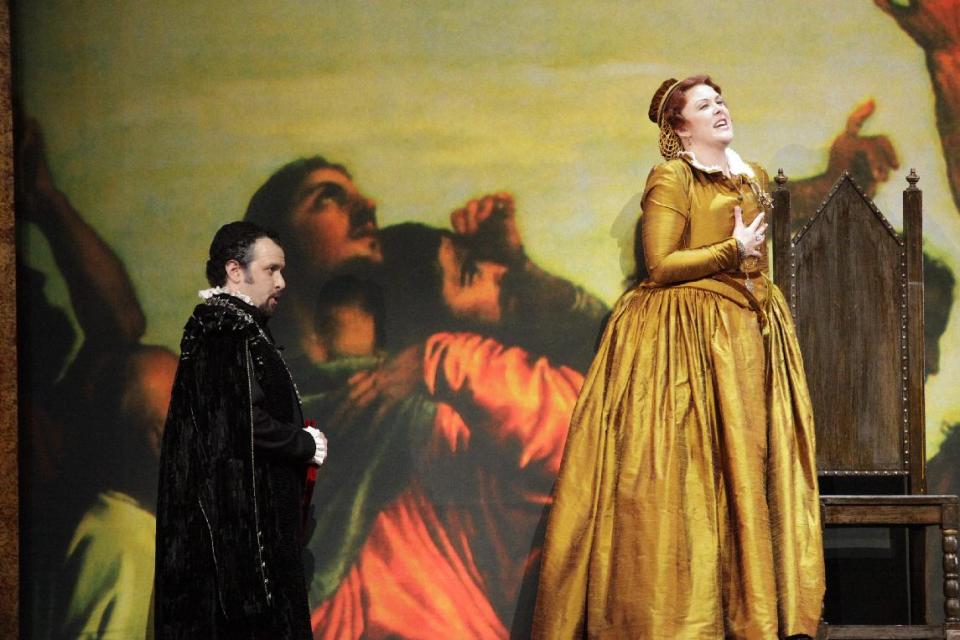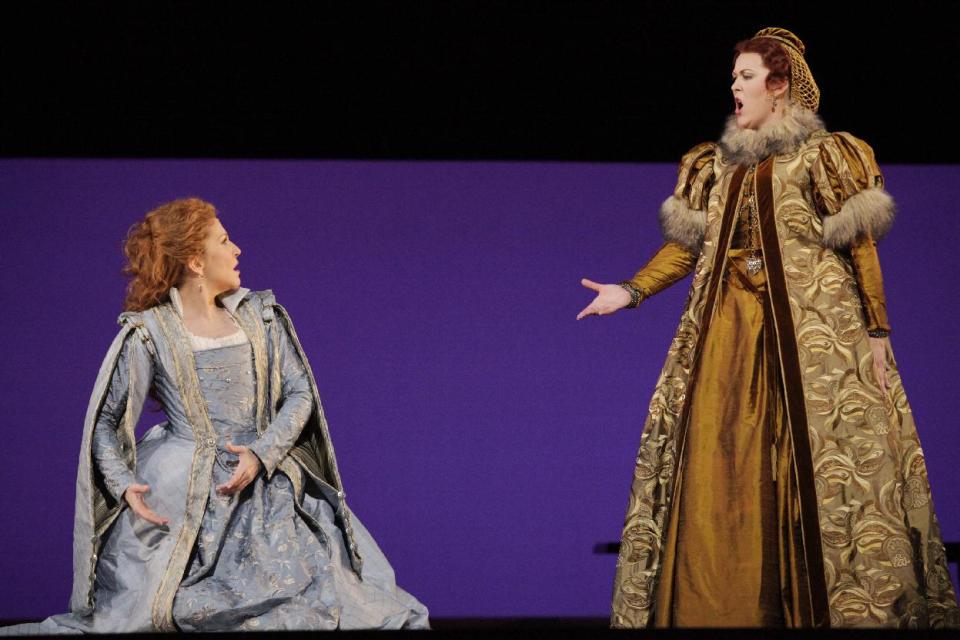Joyce DiDonato takes on opera's Scottish queen
HOUSTON (AP) — In real life, England's Queen Elizabeth I won her battle with Mary Queen of Scots by sending her rival to the scaffold. But in "Maria Stuarda," it's the victim who gets the last word — and the final curtain call.
So it's no wonder that ever since Donizetti's 1835 opera was reclaimed from obscurity a half-century ago, the title role has been a favorite of reigning prima donnas like Joan Sutherland, Beverly Sills and Montserrat Caballe.
On Saturday night, mezzo-soprano Joyce DiDonato joined this distinguished company, scoring a huge success as she performed the role for the first time in a production new to the Houston Grand Opera.
From her first entrance, wistfully recalling her happy childhood days in France, DiDonato sang with commanding power, silken elegance of line and deep expressiveness. She captured Mary's fierce pride and desperation as well as her religious piety and courage in the face of death.
Though the role has often been taken by sopranos who dazzle the audience with their high notes, DiDonato showed that, with the right singer, the lower-voiced alternate version can be just as satisfying. In the florid passages, her embellishments were exquisite — and all the more effective for seeming to flow spontaneously from her character's state of mind.
The centerpiece of the opera is a scene that never took place: a confrontation between the two queens, invented by the German playwright Friedrich Schiller and borrowed by Donizetti's librettist.
Houston provided DiDonato with a worthy foil for this riveting 15 minutes of theater — Katie Van Kooten, an imposing soprano who sang up a storm as Elizabeth and conveyed both her toughness and her torment.
When Mary kneels to plead for her life, Elizabeth responds by berating her for her treacherous conduct. Finally, Mary can stand no more and, in this production, she rises to her feet and circles Elizabeth imperiously. Then, accusing her of dishonoring the throne as the illegitimate daughter of Henry VIII and Ann Boleyn, Mary spits out the words that seal her fate: "Vil bastarda!"
This being opera, the plot is further complicated by the fact that both women are in love with the Earl of Leicester, sung here by tenor Eric Cutler with bright, ardent tone. The smaller roles were handled impressively, too: bass-baritone Robert Gleadow as Mary's trusted friend, Talbot; mezzo Catherine Martin as her attendant, Anne; and bass Oren Gradus as the implacable Cecil, who prods Elizabeth to sign the death warrant.
Patrick Summers, the company's artistic and music director, conducted the orchestra with muscular energy, though a lighter touch would have been welcome in some of the lyrical passages.
The production, borrowed from the Minnesota Opera, uses period costumes and a minimum of scenery, mostly pillars and columns that descend from an ornate gilt ceiling. Director Kevin Newbury does a good job of keeping attention focused where it should be — on the two queens. Both make their initial appearances on raised platforms, and in the confrontation scene a clever lighting projection causes their shadows to tower over those of the other principals.
There are just four more performances to the Houston run. But DiDonato's Mary will reach a wider audience next season when she repeats the role at the Metropolitan Opera in a new production that will be broadcast in HD to movie theaters worldwide.



